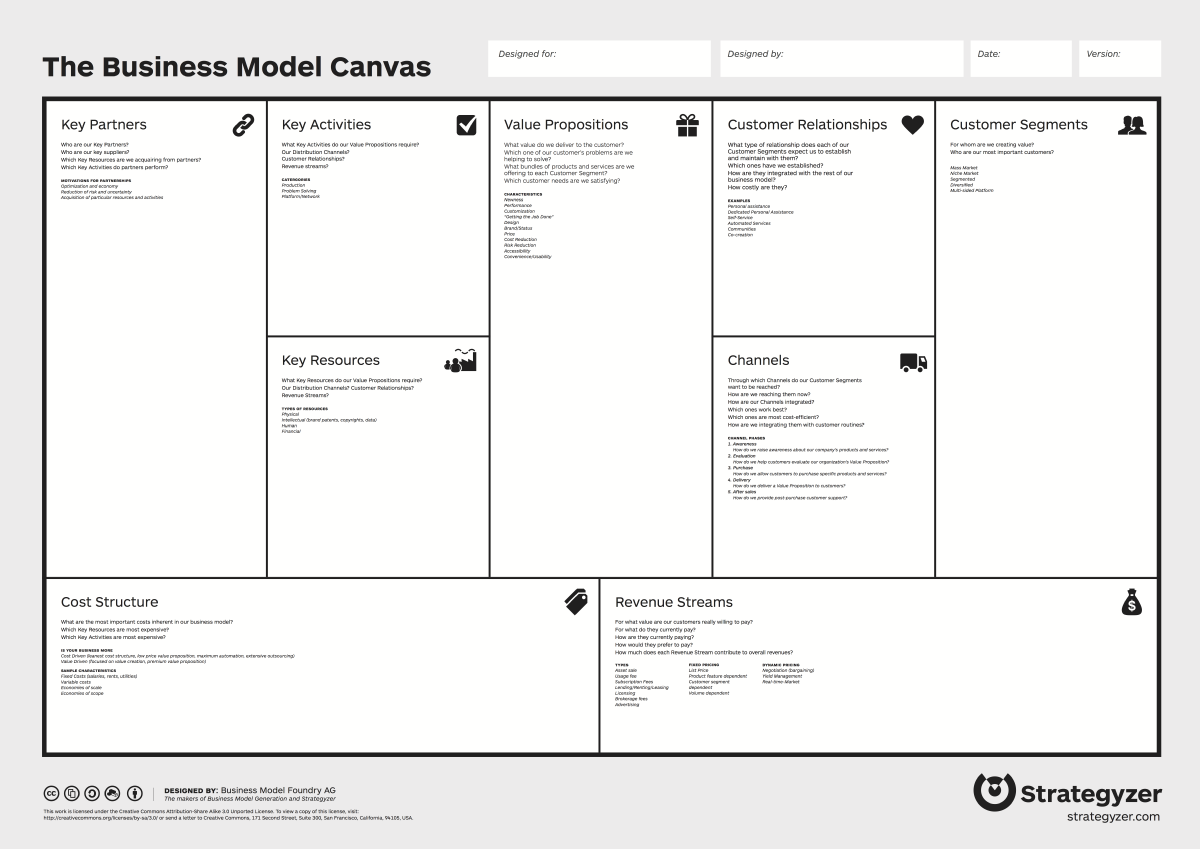Startup Library
3. Develop a business model
The Business Model Canvas (BMC) is your business model on one page. It’s a global standard used by millions of people in companies of all sizes. You can use the canvas to describe, design, challenge, and pivot your business model. It works in conjunction with the Value Proposition Canvas and other strategic management and execution tools and processes.
Canvas overview
Below is a 2 minute overview of the Business Model Canvas to help you get started:
Getting the most out of the canvas
The Strategyzer support page has a ton of excellent resources. Below are the 9 articles on how to make the most out of your business model canvas:
- How do I use the Key Partnerships building block of the Business Model Canvas?
- How do I use the Key Activities building block of the Business Model Canvas?
- How do I use the Key Resources building block of the Business Model Canvas?
- How do I use the Value Propositions building block of the Business Model Canvas?
- How do I use the Customer Relationships building block of the Business Model Canvas?
- How do I use the Channels building block of the Business Model Canvas?
- How do I use the Customer Segments building block of the Business Model Canvas?
- How do I use the Cost Structure building block of the Business Model Canvas?
- How do I use the Revenue Streams building block of the Business Model Canvas?
Great examples
Here are two great examples of applying the business model canvas effectively. The first is a competition that goes through a 24 week journey of entrepreneurs understanding their business model. The second is a visual explanation of how an established business like Warby Parker would look like on a canvas.
OWLET International competition
A video recording of Owlet’s winning presentation at the 2013 IBMC. This video demonstrates how important it is to iterate quickly and testing with many customers. Note how many times they say “we didn’t believe them” when referring to their customer interviews.
Warby Parker case study
Pay attention to the creative use of “buy one-give one” and how it fits into the customer relationships.

